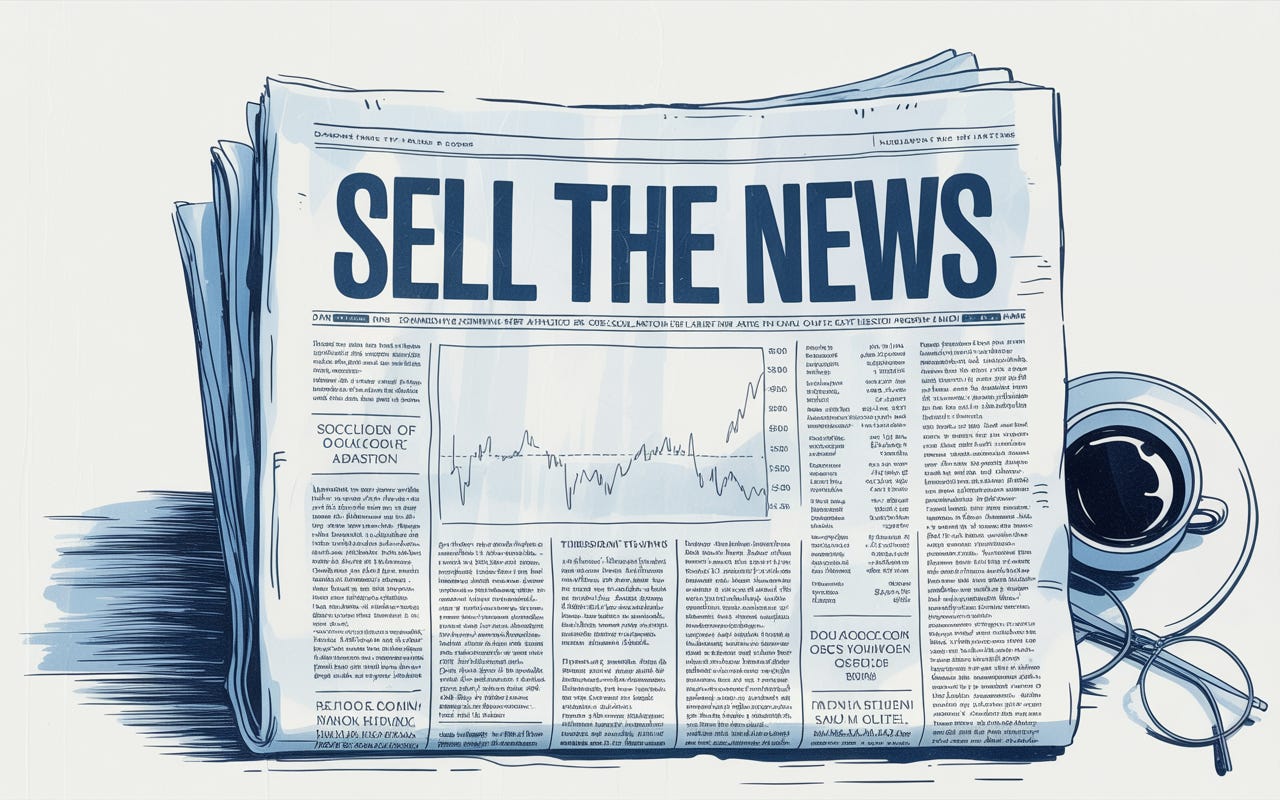Why Markets Often Fall After Good News
Every beginner eventually runs into this confusing moment
Every beginner eventually runs into a confusing moment:
A company reports great earnings… and the stock falls.
A government releases strong economic data… and the market sells off.
A biotech announces a major breakthrough… and the price drops.
The natural reaction is:
“Wait… isn’t good news supposed to make stocks go up?”
Welcome to one of the oldest phrases in investing:
“Sell the News”
“Sell the news” is a common phrase in investing that describes a situation where the price of a stock drops right after positive news is announced.
Why “Sell the News” Happens
There are 2 big reasons:
1. Markets price in expectations early
If traders expect good earnings, they buy days or weeks ahead.
When the news finally drops, there’s simply no one left who hasn’t already bought.
2. Professional traders take profits
When the good news becomes official, pros often use the excitement from beginners as exit liquidity.
Real World Examples
1. Tesla Battery Day (2020)
Tesla’s stock surged in the lead-up to its highly anticipated Battery Day event on September 22, 2020, fueled by rumors of revolutionary battery technology breakthroughs that could transform electric vehicles.
Price Reaction: TSLA shares jumped about 56% in the weeks prior. Immediately after the event, the stock dropped around 10% as investors sold off.
2. Bitcoin ETF Approval (2024)
Throughout late 2023 and early 2024, speculation built around the U.S. SEC potentially approving spot Bitcoin ETFs, leading to widespread buying in anticipation of mainstream adoption and capital inflows.
Price Reaction: BTC price climbed rapidly as rumors intensified. Post-approval, it fell about 15% within days due to profit-taking and the event being fully anticipated.
3. US Federal Government Reopening After Shutdown (2025)
A record 43-day government shutdown, starting in early October 2025, created uncertainty, with markets fluctuating on rumors of bipartisan deals and potential resolutions amid political divisions over funding and health subsidies.
Price Reaction: Post-reopening on November 13, SPX dropped ~2.3%), with much heavier selling taking over individual stocks.
How Beginners Can Avoid This
1. Don’t chase after the news
If a stock is already up 10–20% heading into an announcement, the smart money likely moved earlier.
2. Look at the price action leading into the event
If price has been trending up strongly, the announcement may already be priced in.
3. Remember this rule:
If everyone already knows the news is good, there might not be anyone left to buy.


